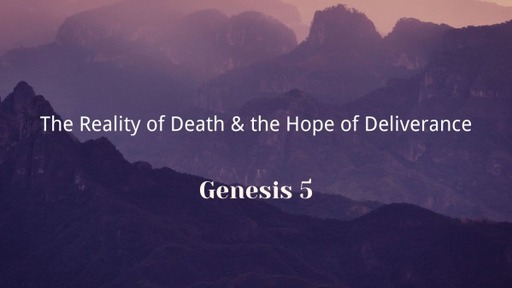The Reality of Death & the Hope of Deliverance

The Reality of Death & the Hope of Deliverance
No One* Gets Out Alive
Moses reaffirms that when Adam and Eve were created, they bore the image of their Creator. Their intellect, emotions, and will were in perfect harmony with God’s, and they enjoyed perfect fellowship with him. Three times Moses refers to conditions as they were at the time of creation. The reason for this will become clear as Moses now contrasts man’s original perfect condition with his sad situation after he lost the divine image.
In sharp contrast with the preceding, we’re told here that when Adam fathered children, they bore their father’s sinful image. Adam had begun his life in a state of perfection. Every one of his descendants, with only one exception, began his or her life in a state of imperfection.
In these verses we can observe the three-step pattern Moses followed in describing the ten patriarchs from Adam to Noah. He did so by supplying chronological data about the life spans of these ten important people.
Moses first tells us how old the patriarch was when he fathered the next-named link in the messianic genealogy. He then tells us how long the rest of the patriarch’s life lasted and, finally, what the man’s total life span was. This three-step pattern is followed throughout the chapter with only two exceptions, which will be noted.
Chapter 5 does not make for exciting reading. Genealogies are not the sort of thing you pick up for the sheer joy of reading. But there are jewels for the taking in this chapter. The alert reader will note, for example, that with a single exception, each segment of the genealogy ends on this same note: “and then he died.” Here is the ultimate proof that humans have fallen from the high dignity that was theirs while they still possessed the image of God. In generation after generation, God’s warning in Eden (“When you eat of it, you will surely die”) proved to be true. Like the tolling of a bell at a funeral, the recurring phrase “and he died” is a forceful reminder of how true this statement is: Down through the years the death rate has remained the same: one per person.
